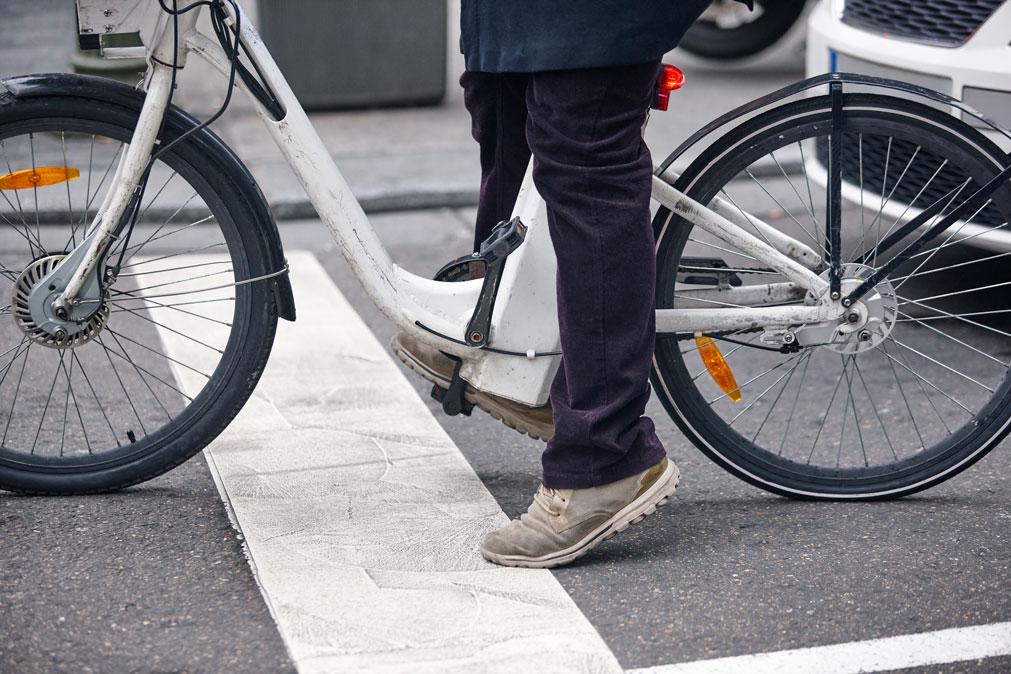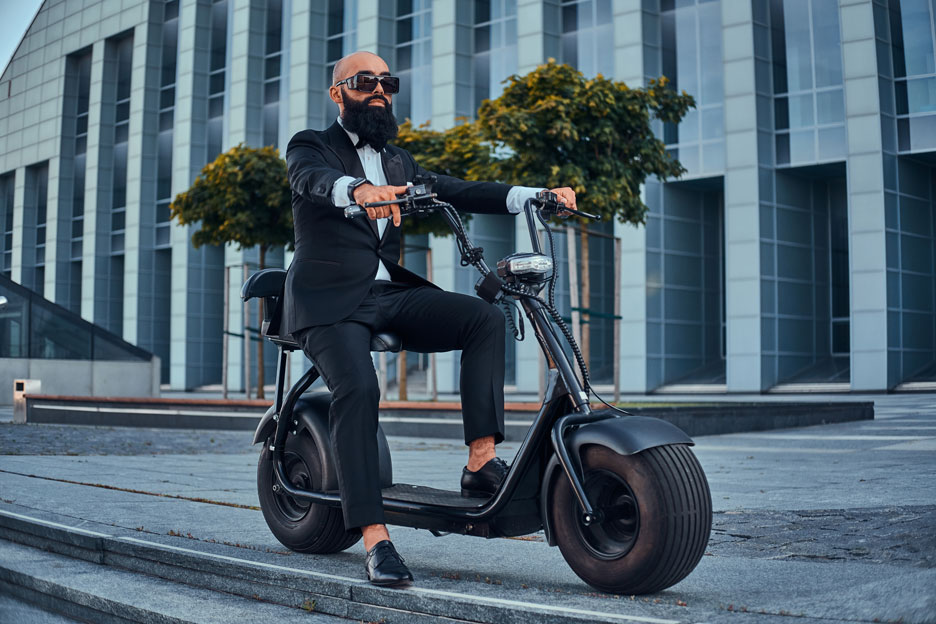
Electric Bikes and the Law: Unraveling the License Conundrum
E-bikes are a green choice for many, but the question do you need a license for an electric bike complicates things. Understanding this licensing puzzle is crucial for both riders and policymakers to ensure safe electric bike use.
Classifications and Licensing
Bike Types and License Logic
To get why licenses are needed, look at how electric bikes are classified. In many places, they fall into classes based on power and speed. Low-speed pedal-assist bikes and faster ones create a blurry line between regular bikes and motorized vehicles, triggering the need for licenses.
Road Safety and Licensing – Do you need a license for an electric bike?
License Need for Road Safety
The question do you need a license to drive an electric bike ties back to road safety. Unlike traditional bikes that are human-powered and slow, higher-capacity electric bikes pose extra risks. Licensing ensures riders know traffic rules, safety guidelines, and understand road etiquette, boosting safety for everyone.
Check: Can Electric Bikes Get Wet?
Implications and Balancing
License Effects and Finding Balance
Licensing has pros and cons. It adds responsibility for riders, promoting awareness of road rules. However, it might discourage some from choosing electric bikes due to the perceived hassle of getting a license. Striking a balance between safety and encouraging sustainable transport is vital for policymakers.
Staying Informed and Compliance
Understanding Rules and Staying Legal
To stay on the right side of the law, electric bike users must know local regulations. Understanding classifications, speed limits, and power thresholds in their area is the first step to compliance.
Education and Resources to answer do you need a license for an electric bike?
Learning and Staying Safe
Riders should actively seek guidance from local transportation authorities or cycling groups. Resources often include safe riding practices, traffic rules, and tips for maintaining electric bikes. Staying informed ensures compliance and promotes a positive image of responsible electric bike riders.

Advocacy and Community Engagement
Influence Through Advocacy
Advocacy plays a vital role in shaping laws for electric bikes. Engaging with local policymakers and cycling groups can help create regulations balancing safety and accessibility. By joining discussions on bike classifications and licensing, riders can shape rules that support sustainable transportation.
Conclusion
Navigating Electric Bike Laws
In conclusion, the licensing debate for electric bikes reflects the evolving transport landscape. Collaborative efforts from riders, policymakers, and advocates can create rules encouraging electric bike use while ensuring safety. Staying informed, engaging in advocacy, and promoting a culture of responsibility are key aspects of navigating electric bike laws.
Decoding Electric Bike Regulations: Do You Need a License for an Electric Bike?
In recent years, electric bikes (e-bikes) have become increasingly popular for eco-friendly and convenient transportation. As the electric bike market expands, understanding the rules becomes crucial. A key area of confusion is whether a license is needed to ride an electric bike. Let’s explore the diverse landscape of electric bike regulations across various countries and regions.
Interesting: Can You Get a DUI on an Electric Bike?
In United States do you need a license to drive an electric bike:
In the United States do you need a license for an electric bike, federal regulations under the Consumer Product Safety Act classify e-bikes into three classes based on speed and power. Class 1 and Class 2 e-bikes, with a top speed of 20 mph, are treated like traditional bicycles, requiring no license. Class 3 e-bikes, with a speed of 28 mph, may have varying local regulations, and some states might impose helmet requirements or minimum age restrictions.
Europe:
In Europe, regulations vary due to the European Union’s (EU) classification. Pedelecs, with pedal-assist up to 15.5 mph, are treated as regular bicycles, needing no license. E-bikes with a max speed of 28 mph might require a license in some European countries, so it’s crucial to check local rules.
In Canada do you need a license for an electric bike?:
In Canada, electric bike regulations differ by province. E-bikes with a max speed of 20 mph and pedal-assist are considered like traditional bicycles, not requiring a license. Those exceeding 20 mph might face specific regulations and licensing requirements in some provinces.
Australia:
Australia classifies e-bikes into three categories based on power and speed. E-bikes with up to 200 watts and a max speed of 15.5 mph are considered bicycles, needing no license. Higher-powered e-bikes may require registration and licensing, varying by state.
Conclusion:
In conclusion, global regulations on electric bikes and whether a license is needed vary. As e-bikes gain popularity, enthusiasts must stay informed about specific regulations in their region. Whether cruising through New York, biking in Europe, or exploring Asian cities, knowledge of local laws ensures a smooth and enjoyable electric biking experience.

Do You Need a License for an Electric Bike: Electric Bike Regulations by State
The popularity of electric bikes (e-bikes) is surging in the United States. Navigating state regulations is a challenge, with each state having its own rules. This guide explores electric bike regulations state by state, clarifying licensing requirements, age restrictions, and other crucial details.
California: Pioneering Electric Bike Legislation
California leads in electric mobility. Class 1 and 2 e-bikes are allowed on bike paths; Class 3 is limited to roads with up to 35 mph speed limits. Must say, no age restrictions, but under 16 riders must wear helmets.
New York: Navigating the Urban Landscape
In New York, do you need a license for an electric bike? Electric bikes are legal but rules vary across boroughs. Class 1 and 2 e-bikes are generally allowed; Class 3 is not. Helmets are mandatory, and riders must be at least 16.
| E-Bike Class 1 |
E-Bike Class 2 |
E-Bike Class 3* |
|
| Electric bike, pedal-assist | Electric bike, throttle up to 20 MPH, operable pedals | Electric bike, throttle up to 25 MPH, operable pedals | |
| How fast can you go? | 20 MPH | 20 MPH | 25 MPH |
| Do you need a license for an electric bike? | No | No | No |
| Do you need to register my bike? | No | No | No |
| Where can you ride? | Bike lanes & streets with speed limits no greater than 30 MPH | Bike lanes & streets with speed limits no greater than 30 MPH | Bike lanes & streets with speed limits no greater than 30 MPH |
| Do you need to wear a helmet? | Recommended for all, required for 16-17 year olds & working cyclists | Recommended for all, required for 16-17 year olds & working cyclists | Yes, required by law |
Texas: Riding High in the Lone Star State
Texas embraces electric bikes on roads, bike paths, and trails unless prohibited. Helmets aren’t mandatory but recommended, and no age restrictions apply, though local rules may differ.
Florida: A Haven for E-Bike Enthusiasts
Florida is e-bike-friendly, allowing them on roads, bike lanes, and paths. There is no specific age restrictions, but helmets are required for riders under 16. Local rules may vary.
Colorado: Embracing Sustainable Transportation
Colorado encourages e-bikes on paths, unless specified. Again, no age restrictions, but helmets are mandatory for riders under 18.
Ohio: Navigating the Heartland
Ohio treats e-bikes like traditional bicycles, allowing them on roads, bike lanes, and paths. And again, no age restrictions, and helmet use is recommended but not mandated.
North Carolina: Riding the Scenic Trails
NC allows e-bikes on roads, bike lanes, and multi-use paths. Like for other states, no specific age restrictions, but helmets are required for riders under 16. Local rules may apply.
Conclusion:
Navigating electric bike regulations is crucial for a seamless and legal riding experience. As the electric bike revolution grows, staying informed ensures compliance and a safe ride. The answer to “do you need a license for an electric bike” varies. From New York’s urban chaos to NC’s scenic trails, riders can confidently pedal with knowledge about varied electric bike regulations state by state.

Beyond Licensing: The Legal Landscape of Electric Bikes
In recent years, riding a bike and electric bikes (e-bikes) have surged in popularity. As the number of e-bike riders grows, so does the need for a comprehensive understanding of the legal landscape and do you need a license for an electric bike. Beyond the typical licensing requirements, riders should be aware of a broader range of legal considerations, including speed limits, age restrictions, and other regulations that may vary across jurisdictions. Let’s answer do you need a license to drive an electric bike?
Generally, there are three classes of e-bikes, each with its own set of regulations:
Class 1 E-Bikes: Pedal-Assist Only
Class 1 e-bikes are equipped with a motor that assists the rider while pedaling, ceasing to provide assistance when the bike reaches 20 miles per hour (32 km/h). These e-bikes are often allowed on bike paths and multi-use trails.
Class 2 E-Bikes: Throttle-Assist
Class 2 e-bikes are equipped with a throttle that can propel the bike without pedaling. Similar to Class 1, they are limited to 20 miles per hour (32 km/h) and are generally allowed on the same paths and trails as traditional bicycles.
Class 3 E-Bikes: Pedal-Assist with Increased Speed Limit – Do you need a license to drive an electric bike
Class 3 e-bikes, akin to Class 1 but faster at 28 mph (45 km/h), might have restrictions in certain areas or need extra safety features, like a speedometer.
For electric bike riders, understanding these classifications is key to obeying local regulations. Exceeding speed limits can lead to legal trouble. Some places also impose age restrictions, barring younger riders from certain e-bike classes.
Age restrictions, often overlooked, differ widely. In some areas, no age requirements exist, treating e-bikes like regular bikes. However, others enforce age limits for specific classes, underscoring the importance of riders knowing local laws.
Helmets are often mandatory, regardless of age. Some places require them for all riders, while others specify certain classes or age groups. Helmets ensure legal compliance and, more importantly, boost rider safety.
Knowing where to ride legally is crucial. While many areas permit e-bikes on roads and bike paths, some trails or pedestrian zones may have restrictions. Local ordinances can vary, so riders need to be familiar with them to avoid legal issues.
Compliance with traffic laws is a must. E-bike riders must follow the same rules as traditional cyclists: obey signals, yield to pedestrians, and use proper hand signals for turns.
Conclusion
In conclusion, beyond licensing, e-bike riders need a good grasp of the broader legal landscape. This includes understanding classifications, speed limits, age restrictions, helmet requirements, and traffic laws. A solid knowledge of the legal framework ensures compliance and contributes to safe integration of e-bikes into existing transportation systems. As e-bike popularity grows, an informed and responsible rider community is vital for a positive and legally sound environment.
Do you need a license for an electric bike: What to Expect
We will explore the emerging trends and changes in electric bike regulations and do you need a license for an electric bike, providing insights into what riders can anticipate, particularly in terms of licensing requirements.
Classification and Definition:
One of the key challenges in regulating e-bikes lies in their diverse range of designs and capabilities. To address this, there is a trend towards more detailed classifications based on factors such as motor power, maximum speed, and pedal-assist capabilities. These classifications help authorities establish clear guidelines for different types of e-bikes, ensuring appropriate regulations for each category.
Maximum Speed Limits:
The maximum speed at which an e-bike can operate is a crucial factor in ensuring safety on roads and bike paths and to answer do you need a license for an electric bike. Emerging regulations may refine speed limits based on the classification of e-bikes, with stricter controls for faster and more powerful models. This differentiation recognizes the varying capabilities of e-bikes and tailors regulations to their specific characteristics.
Helmet Requirements:
As e-bike usage becomes more widespread, there is a growing emphasis on rider safety. Some regions are considering or have already implemented mandatory helmet requirements for e-bike riders, aligning them with regulations for traditional motorized vehicles. This shift aims to mitigate the risks associated with higher speeds and increased traffic integration.

Age Restrictions and Licensing:
A significant development in e-bike regulations revolves around age restrictions and licensing. While traditional bicycles typically do not require a license, e-bikes with higher power ratings may be subject to age limitations and licensing requirements. This trend reflects the acknowledgment that more powerful e-bikes share characteristics with mopeds or scooters and should be regulated accordingly.
Insurance Considerations and do you need a license for an electric bike:
As e-bikes become more integrated into urban transportation systems, there is a growing discussion about insurance requirements. Some regions are exploring the possibility of mandatory insurance for e-bike riders, particularly for those operating high-speed models. This would provide a layer of protection for riders and other road users in the event of accidents.
Infrastructure Integration:
Forward-looking regulations are likely to address the integration of e-bikes into existing transportation infrastructure. This includes considerations such as bike lane design, charging station availability, and traffic management systems tailored to accommodate the unique characteristics of e-bikes. Collaborative efforts between urban planners and regulatory bodies will be essential to create a safe and efficient environment for e-bike users.
Technological Innovations and Compliance:
As technology continues to advance, e-bikes are incorporating features such as GPS tracking, speed limiters, and automatic lighting systems. The question is do you need a license to drive an electric bike? Future regulations may mandate the inclusion of these technologies to enhance safety and ensure compliance with established guidelines and this might change do you need a license for an electric bike.
Conclusion
In conclusion, the future of electric bike regulations is shaped by a commitment to balancing innovation with safety. Riders can anticipate a shift towards more detailed classifications, age restrictions, and licensing requirements, particularly for higher-powered e-bikes. As e-bikes become a more integral part of the transportation landscape, the regulatory landscape will evolve to accommodate these changes, ensuring a harmonious coexistence with traditional bicycles and motorized vehicles. Stay informed, ride responsibly, and embrace the exciting developments on the horizon for the future of electric bike regulations.
* Disclaimer: This is not legal advice. Please consult licensing department – all information provided here is from findings on the internet.



